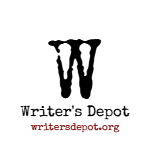
Common and quirky methods for writing past inattention and hyperactivity Photo by Karl JK Hedin on Unsplash‘They’re very good here,’ said the stranger.
Photo by Karl JK Hedin on Unsplash‘They’re very good here,’ said the stranger.
When I was younger, my mother took me to the Rochester Center for Behavioral Medicine to visit a specialist that could help me work through some bad grades and apparent attention problems.
Forms and clicky pens in hand, we sat in the lobby and filled the required form fields with personal information — which really meant — my mother filled in the personal information while I, oblivious to my disruption of others, click. click. clicked that pen.
I couldn’t tell you how long the clicking continued, but at a certain point, another parent leaned towards my mother to say those words… ‘They’re very good here.’
Attention Deficit Hyperactivity Disorder (ADHD)
Is the most common of neurodevelopmental disorders affecting over 8.4% of children and 2.5% of adults. Someone diagnosed with ADHD might be considered hyperactive, compulsive, inattentive, distractible, or any aforementioned configuration. Other common symptoms of ADHD include:
Difficulty remaining stillOrganizational problemsPoor time managementTrouble multitasking or task switchingEasily frustrated or stressedTrouble completing tasks on time or following through to the task’s end
To learn more about ADHD, visit The American Psychiatric Association: What is ADHD?
Writing With ADHD
I’ve always struggled with a healthy mix of both inattentive and hyperactive traits. Missing assignments, papers left at home, or misunderstood instructions were constant detriments to my grades growing up — and I still have a hard time controlling motor ticks and urges to readjust.
I turned out all right. I graduated well and today work a job writing and keeping track of content (successfully, I might add). But maintaining enough focus to complete my unstructured passion projects (AKA those I’m not paid to do) can be a real challenge and a point of frustration.
But it hasn’t been impossible
Not one for the side effects of prescribed medications — I’ve found alternative tools and rituals to keep the words flowing and enable my success. So, if you sound like me and have been looking for some unique, maybe even quirky ways to make it through your next writing project, here are six suggestions.
1. Embrace cloud technology
It’s pretty apparent why the Cloud would significantly benefit someone who frequently loses personal belongings and paper documents. Plus, keeping all those separate files and folders organized on a drive is time-consuming and overwhelming.
That’s why I do almost all of my writing on Google Docs. It eliminates wasted time spent formatting a new project, and I never lose my work. Honestly, I’m not sure I would’ve made it through school without the Cloud.
2. Find your time for glory
If you struggle with inattention, knowing what times you can be your most focused self is half the battle. For me, that’s between 8–11 a.m. It’s my time for glory (but call it whatever pumps you up).
That doesn’t mean limiting yourself to a few hours each day (please don’t!). But figure out your most efficient block of time, turn off emails and other distractions, and tackle your day’s most daunting challenges head-on.
3. Remove the ‘DELETE’ key
Ever spent too long trying to smith the perfect words? Well, Stop it. Nothing is ever going to be perfect, and that valuable time you’ve set aside to hit your word goals shouldn’t be wasted on one sentence.
To stop me from habitual spamming DELETE, I’ve at times physically removed the key altogether. It’s an extreme measure but keeps my writing moving forward instead of backward.
You will be frustrated by your uncorrected spelling and grammar errors at first, but save those mistakes for editing and focus this time on putting words through the processor.
4. Create mood boards & playlists
Spending too much time creating mood boards or making a playlist of writing music can be another distraction from actually writing, so be careful with this one.
That said, picking a time outside of your usual writing to create some sources of inspiration comes in handy on those days when sitting still and focusing seems impossible.
Make a playlist of thematic music and save pictures that fuel inspiration. By keeping these accessible while writing, you can stay immersed in your project at all times.
5. Good ole pen & paper
I spend A LOT of wasted time flipping through tabs and “productivity” tools. But there’s no better way to focus on the pure act of writing than picking up the basics — a pen and some paper.
Writing in pen requires a little more work than rapid-fire typing, but the extra time put into each word makes for thoughtful and intentional sentences.
Let’s talk Fountain Pens
Fountain pens are a frivolous luxury. They also really work in getting you excited to write.
For starters, there’s no clickiness (which, as we’ve discussed, can be a distraction). Secondly, there’s something about the process of inking your pen and slowly, methodically writing a line that just fuels the creative soul. If you don’t mind shelling a few bucks, fountain pens are an elevated writing experience that you need to try.
6. Mechanical keyboards
Speaking again of clicking — mechanical keyboards scratch the particular itch to click while still being productive.
Mechanical Keyboards offer personality and customizability to your typing, giving you one more thing to be excited about when you sit down to write. They come in sizes that range from full-on dashboards to tiny minimalistic things — and can be equipped with key switches to match your desired writing style, speed, and noise tolerance.
Check out a few examples to hear what suits you.
For me, the clicker, the better. I use a tenkeyless keyboard (sans numerical pad) equipped with MX Cherry Blue key switches. They are some of the loudest and most tactile keys on the market. So when the time comes to write, I get all the clicks, all the time.
The bottom line
There’s no one-size-fits-all solution to balance inattention and hyperactivity with productive writing. But the solutions I’ve adopted — however extreme — enhance my organization, keep me focused, and enable me to wield a few personal quirks as forces for good.
What works for you will end up being your personal journey. The most important tip to remember is “Be patient with yourself.” Ultimately, you are writing because you have a story to tell. And if something is causing too much frustration — take a breath, let it go, and try again later.
Liked this story? Follow me on Medium or click here for more of my work.
Writing Tools That’ve Helped My ADHD was originally published in The Writing Cooperative on Medium, where people are continuing the conversation by highlighting and responding to this story.
Read more: writingcooperative.com
